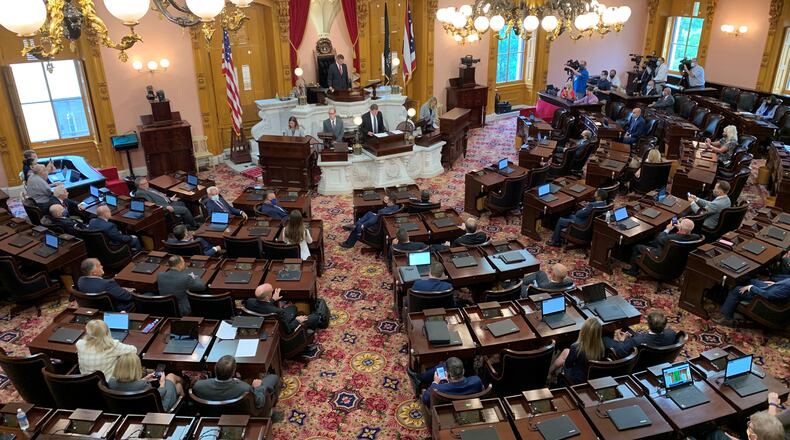According to the Ohio General Assembly, those issues and half a dozen others in just the current legislative session count as emergencies.
Why’s that? Because legislators say so.
What that really means is that a law will go into effect immediately rather than having to wait. And it’s due to a special clause appended to a bill, declaring the matter to be an emergency.
New laws normally go into effect 90 days after they’ve been filed with the Ohio Secretary of State – meaning they’ve been passed by legislators and signed by the governor.
Because the mechanism for declaring an emergency is written into the state constitution, legislators have to specifically add that declaration to bills each time they want to use it, said Marc Clauson, professor of history and law at Cedarville University. Otherwise they could simply declare that bills are effective immediately.
“Both the emergency clause and the law as a whole must receive the affirmative vote of two-thirds of the members of each house,” said Jim Kelly, director of the Ohio Legislative Service Commission’s Office of Research and Drafting.
That’s not always easy to achieve. Recently, in the long partisan wrangle over drawing a new U.S. House district map, state House Speaker Bob Cupp, R-Lima, has said he doubted a two-thirds majority would agree to declare an emergency to either reschedule the fast-approaching primary election or approve a new congressional district map.
That left legislators with the conundrum of needing a new map in less than 90 days — to be used in the May 3 primary — but not having that much time to pass one. That’s why the task was thrown back to the Ohio Redistricting Commission: since the commission’s product wouldn’t technically be legislation, its new map could go into effect without the wait. Commissioners approved a new map March 2, which is now under review by the Ohio Supreme Court.
Kelly’s office hasn’t specifically analyzed historical patterns of the use of emergency clauses, he said via email. But the LSC publishes an annual Digest of Enactments which indicates the bills that passed as emergency measures.
“I happen to be reviewing the Digest for 2021, which will be published soon,” Kelly said. “It shows that 13 of the 71 bills passed last year contained an emergency clause. I do not know if that proportion is typical.”
The history of legislative emergency declarations stretches back as far as the French Revolution, Clauson said. Many states have similar legal mechanisms. From the beginning, though, they were intended to be used for real emergencies such as dealing with natural disasters, he said.
“For instance, if the Congress were to declare war, they don’t want to wait 90 days to go into effect,” Clauson said.
But when easy exceptions like this exist, pretty soon you get “mission creep” as they’re used whenever it seems handy: “Well, this looks like an emergency to us,” he said.
“And really, by objective standards, it isn’t an emergency,” Clauson said.
In most cases a 90-day delay is not that significant — but it would give people time to think about a bill’s effects, respond with legal challenges or adjust business practices to comply with pending laws, he said.
“It’s a cooling-off period, if you will,” Clauson said. “There are good reasons why they should wait, sometimes.”
Authorization for declaring bills to be emergency measures dates back to state constitutional amendments that voters approved in 1912, Kelly said.
Four sections of Article II establish the right to hold a popular vote on legislation passed by the General Assembly, he said.
“The 90-day wait for a bill to take effect is constitutionally mandated to allow time for gathering signatures to place a referendum on the ballot,” Kelly said.
But one of those sections gives three exemptions from public referendum: appropriations for state government expenses, taxes, and “emergency laws necessary for the immediate preservation of the public peace, health, and safety.”
Clauson said he’s concerned that emergency declarations are overused, and that their use is increasing.
“We’re not as reflective as we were. We’re not as deliberative as we were. And it tends to make everything a crisis,” he said.
About the Author

